
Each state has its own laws and regulations regarding car accidents, including whether it operates under a fault or no-fault system. Washington State operates under a fault-based system, also known as a tort system. In other words, the person who caused the accident (the at-fault party) is responsible for paying damages to the injured party (meaning their auto insurance company must cover the damages up to the limit of their liability).
We are Bungay Law and have tremendous experience representing people involved in an accident in Washington State. Our car accident lawyers are here to give you the representation you need and deserve. Learn more about what you should do following a car accident in the local area, and give us a call to arrange a schedule for a free case consultation with our Washington car accident attorney.
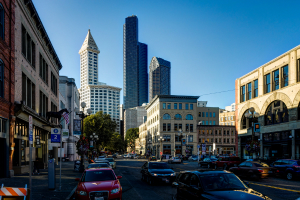
A car accident is a traumatic experience that can result in significant physical and emotional distress. Dealing with the aftermath, including dealing with insurance companies, can be overwhelming. However, knowing your rights and understanding the legal landscape in Washington can make a big difference in your recovery process. We at Bungay Law are here to guide you through every step, offering empathy, care, and dedicated legal expertise.
A Washington car accident lawyer from our law firm would gladly represent you and protect your rights after an accident. When an accident occurs, seek medical care first. Then, please schedule a consultation with our experienced personal injury lawyer.
Car accidents are, unfortunately, a common occurrence in Washington state. According to one news source, more than 329 car accident deaths were in the first half of 2022 alone. This statistic underscores the importance of understanding car accident laws in Washington, as you or a loved one could become involved in such an accident.
Talk to your own insurance company about your collision or liability insurance. Then, reach out to us following an auto accident.
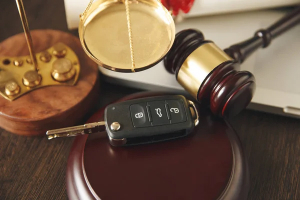
Understanding the basics of Washington state car accident law can help you navigate the often confusing aftermath of a car accident. Key principles to know include comparative fault laws, uninsured/underinsured motorist coverage, and personal injury protection (PIP) coverage. You should know how police and insurance determine the at fault-driver.
Washington follows a "pure comparative negligence" rule, as detailed in RCW 4.22.005. This means that if you're found partially at fault for the accident, your compensation will be reduced by your percentage of fault.
For example, if you're 30% at fault and the total damages are $100,000, you can only recover $70,000.
Uninsured/Underinsured Motorist Coverage (UM/UIM) protects if you're involved in an accident with a motorist who either doesn't have insurance or doesn't have enough insurance to cover the damages. In Washington, insurers must offer UM/UIM coverage, but drivers may reject it in writing.
Personal Injury Protection (PIP) coverage is an extension of car insurance that pays medical expenses and, in some cases, lost wages. It is often called "no-fault" coverage because it pays out claims regardless of who is at fault in the accident.
In Washington, insurance companies are required to offer PIP coverage, but you may decline it in writing.
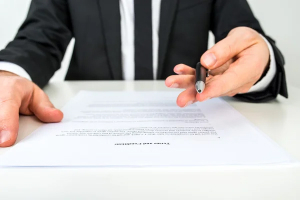
Washington State law requires all drivers to carry a minimum level of auto liability insurance. This includes $25,000 for injuries or death to another person, $50,000 for injuries or death to others, and $10,000 for damage to another person's property.
Anyone who does not have the minimum level of insurance coverage could face a ticket and a fine.
Being involved in a car accident can be a disorienting and distressing experience. However, taking certain steps after a car accident in Washington is crucial to protect your rights and ensure you're taking care of your health. The steps you need to follow include:
After a car accident, things can seem complicated and stressful. Handling these steps is important to protect yourself and your potential claim. At Bungay Law, we're here to help guide you through this challenging time.
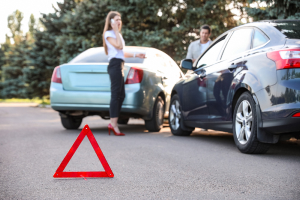
As Washington is a fault state, determining who is at fault in a car accident is crucial. A fault is typically established based on the evidence from the accident, like police reports, witness statements, and photographs from the scene. Insurance companies will typically investigate and determine fault based on this evidence.
In Washington, the statute of limitations for filing a car accident claim is generally three years from the accident date, as per RCW 4.16.080. Acting promptly to ensure you retain your right to file a claim is important.
You may be entitled to recover various damages if you've been injured in a car accident.
Economic damages refer to financial losses incurred due to a car accident. They are quantifiable and easily proven by bills, receipts, and wage statements. Economic damages in a car accident may include:
Non-economic damages compensate for non-monetary losses, often called "pain and suffering." These damages are more subjective and can be more challenging to quantify. Non-economic damages can include:
It's essential to remember that the value of economic and non-economic damages varies widely depending on the specifics of each case. At Bungay Law, we can help you understand the potential value of your claim and guide you through the process to seek the compensation you deserve.
Navigating the aftermath of a car accident can be complex. Having an experienced car accident attorney on your side can be invaluable. They can help you understand your rights, negotiate with insurance companies, and, if necessary, represent you in court to ensure you get the compensation you deserve.
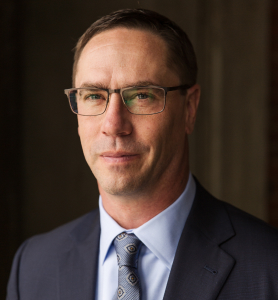
At Bungay Law, we're here to help you navigate the complexities of car accident law in Washington State. Schedule an initial consultation with us to learn how we can help you get the justice and compensation you deserve.
If you've suffered serious car accident injuries, seek medical care first. Then, give us a call to schedule a free consultation.
Some of the most common questions people ask us include:
Your car insurance rates may increase after an accident, especially if you're found at fault. To learn more, you should reach out to your insurance company.
The cost of car insurance varies considerably based on various factors, such as your driving history, age, and the type of car you drive. Getting quotes from multiple insurance companies is best to understand the potential cost.
In a no-fault state, your insurance typically covers your damages, regardless of who caused the accident. However, Washington is a fault state. This means that the driver blamed for the accident will use his insurance policy and ask his insurance company to cover the costs of the accident.
Search
Request A
Start your no-obligation Free consultation with us by filling out the form below and we will contact you about your case within 24 hours.
"*" indicates required fields